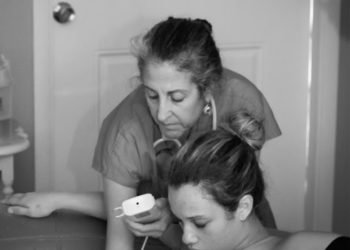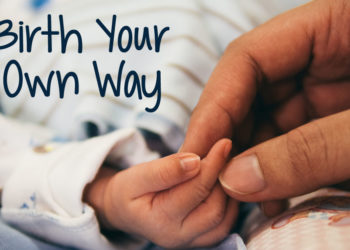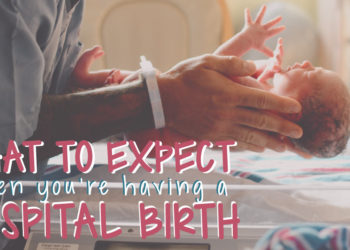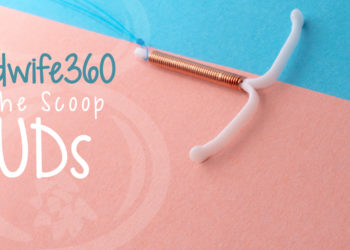As a new mom, you’re probably feeling overwhelmed, exhausted, and unsure of how to take care of your body. It’s no secret that having a baby can be a huge adjustment, so it’s important to take the time to care for your body during postpartum recovery.
Whether you’re a first-time mom or a seasoned pro, these tips and tricks will help you feel your best and get through the fourth trimester with ease. From nutrition to exercise and beyond, learn how to nourish your body and mind and make the transition to motherhood a little bit easier.
Understanding Postpartum Recovery
Postpartum recovery is the time period after giving birth during which your body is healing and adjusting to new motherhood. It can be a really exciting and emotional time, but it’s also important to remember that your body might go through some major changes.
Some of these might include: changes to your hormones as they readjust to your pre-pregnancy levels, changes in your mood and emotions as you adjust to becoming a parent, fatigue, feeling out of balance, and dealing with pain, swelling, and other healing symptoms. These are all normal parts of the postpartum recovery process.
You might notice that your body is changing a lot during this time, too. You might feel an intense pressure in your pelvic region as it heals, and you might notice that your breasts have become engorged as they start producing milk for your baby. These are all normal parts of the postpartum recovery process that might make you feel uncomfortable, but you don’t have to go through them alone.
Nutrition for Postpartum Moms
Drinking enough fluids, eating nutrient-rich foods, and getting plenty of sleep may seem like obvious tips for new moms, but they’re often overlooked. Remember that you have a new person to nourish and support now, so your diet will play a major role in the postpartum recovery process.
Make sure to drink lots of water throughout the day, and if you find yourself feeling really thirsty, that’s a sign that your body needs more fluids. Eating a healthy, balanced diet is also important, but if you’re breastfeeding, you might find that some nutrients are more difficult to absorb. Remember to speak with your doctor if you have concerns about your nutrient intake.
Exercise Tips for Postpartum Moms
Exercise is extremely important during your postpartum recovery, but you might find that you’re not feeling up to your usual routine. If you’re feeling up to it, try swimming, walking, or gentle yoga. Avoid high-impact exercises, such as running, during your first six weeks after giving birth.
If you had a cesarean surgery (c-section), wait until your incision has healed before starting an exercise routine. Remember that your body may be feeling different and that it might take time for your energy levels to return to normal. Try to fit in short exercise sessions throughout the day to help reduce fatigue and boost your mood.
Postpartum Mental Health Tips
Breastfeeding can be a challenging, emotional experience for many moms, especially in the first few weeks after giving birth. It’s important to remember that every woman is different, and that it can take time to find your breastfeeding groove.
If you’re feeling anxious or unsure about breastfeeding, consider finding a local breastfeeding support group or contacting a lactation consultant. Other postpartum mental health tips include staying hydrated, getting enough sleep, and finding time for self-care and self-love. These will help you feel more balanced and happy, which can help make breastfeeding more enjoyable.
Always feel free to call Midwife360 to speak with one of their midwives and doulas to get the comforting you need.
Dealing with Postpartum Body Changes
There’s no magic wand that can make postpartum body changes disappear, but there are lots of things you can do to help boost your self-esteem during this time.
Try to wear loose clothing that’s made with breathable fabrics, find support and reassurance in your partner, and try not to compare yourself to other new moms.
Breast pumping is very beneficial as well. They can be used to maintain or increase a woman’s milk supply, relieve engorged breasts and plugged milk ducts, or pull out flat or inverted nipples so a nursing baby can latch on more easily.
Remember, every new mom experiences postpartum body changes differently, and yours are normal and expected. If you’re feeling really uncomfortable and self-conscious, consider joining a postpartum support group or taking a yoga class designed for new moms.
Bonding with Baby During Postpartum
Bonding with your baby is one of the most important things you can do during the postpartum recovery process. While you’re still recovering from giving birth, try to get as much rest as possible and don’t feel guilty about taking naps and getting help with household tasks.
Give yourself permission to take it easy for a few weeks, and focus on bonding with your baby. Feed your baby as often as you need to, and spend lots of quality time cuddling with your little one.
Postpartum Self-care Tips
Taking care of yourself during your postpartum recovery is important for many reasons. It can help boost your mood and self-esteem, it can help you recover faster, and it can help you feel better equipped to care for your baby.
Using a peri bottle is very beneficial and keeps you sanitized without the irritation of toilet paper. A peri bottle is used to clean the vulva after a new mom uses the toilet to eliminate waste and/or when she changes her postpartum pad. It’s kinda like a portable bidet for the postpartum vulva.
- Journaling
- Taking a bath
- Get sleep
- Drink lots of water
- Enjoy a glass of wine
Avoid comparing yourself to other new moms, and don’t be ashamed to reach out to others for help.
Postpartum Resources with Midwife360
After giving birth, it can be hard to find the time and energy to look after yourself. Midwife360’s Postpartum Doula Program is designed to help new moms with their physical and emotional needs.
With a postpartum doula by your side, you’ll be able to rest and recover with the confidence that the basics are covered. A postpartum doula can help with things like housework, meal prep, laundry, and transportation so that you can focus on resting and bonding with your baby.
If you’re pregnant or thinking about becoming pregnant, talk to your doctor or midwife about the best way to prepare for the postpartum period. The sooner you start preparing, the better your postpartum experience will be.


















